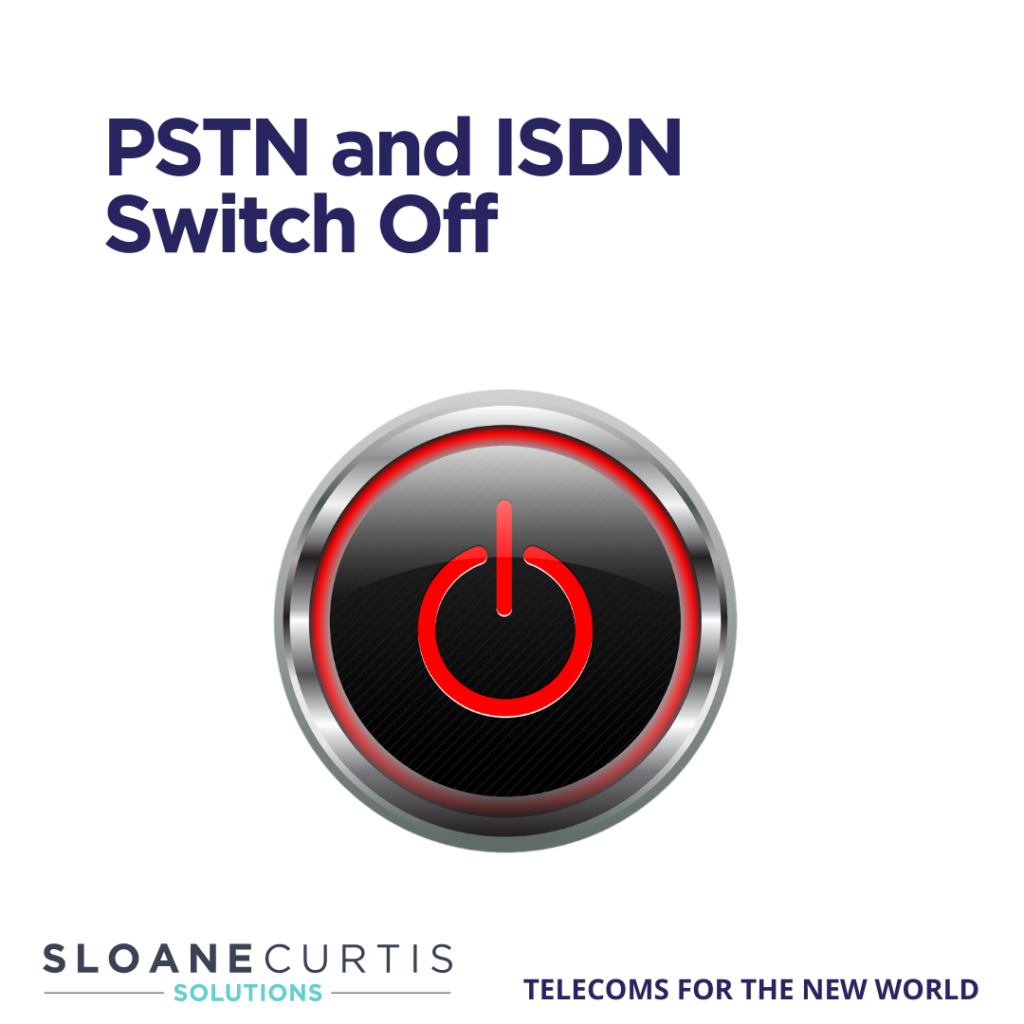By 2027, the UK will move away from copper connectivity, switching to an all-IP (Internet Protocol) world of full fibre and digital voice. The PSTN (Public Switched Telephone Network) and ISDN (Integrated Services Digital Network) switch-off will mean the old analogue and ISDN lines you have been and are most likely still using will soon become obsolete.
Let’s look at what the big PSTN and ISDN switch off is in more detail.
What's it All About?
In 2015, BT stated that they would be deactivating both their ISDN and PSTN services in 2027. This is due to the two technologies being unable to provide the newest and best capabilities that telecoms now need to stay competitive in an increasingly digital world.
What Does This Mean for Businesses?
The PSTN and ISDN switch off are going to be a big change for businesses and the way they communicate. Most businesses have used ISDN lines to make calls and transmit data for many years but after 2027, these will no longer be available. This means businesses need to start planning now so they remain connected after PSTN, and ISDN is switched off.
Although the existing network isn’t going to be completely switched off until January 2027, the selling of the copper lines that support ISDN are no longer available to purchase or install. Therefore, it is important for businesses to start planning their migration to IP technology services now.
Who will be affected by the ISDN switch-off?
The ISDN switch-off will primarily affect businesses that:
- Use ISDN lines for voice calls.
- Have an analogue FTTC (Fibre To The Cabinet) line.
- Use an analogue broadband ADSL line.
What do I need to do if I’m affected by the ISDN switch-off?
If you’re a business that uses ISDN lines for voice calls, you’ll need to switch to a new technology such as VoIP or SIP trunking. You may also need to change your broadband to FTTP (Fibre To The Premises) or SoGEA (Single Order Generic Ethernet Access).
What is IP Technology?
Internet Protocol telephony, also known as IP, uses technology to send voice and multimedia communications over an IP network. There are a couple of options available for business owners who need to replace their ISDN services.
VoIP (Voice over Internet Protocol).
VoIP is a cost-effective and reliable solution for businesses of all sizes. VoIP technology allows businesses to make and receive calls using an internet connection. With VoIP, voice calls are converted into packets of data. These packets then travel over the public internet or a private IP network like any other type of data, such as email.
SIP (Session Initiation Protocol) Trunking.
SIP technology uses an internet connection to connect a business’s phone system to the public telephone network. SIP trunking is a flexible and scalable solution that can be used by businesses of all sizes that currently have an on-premises phone system.
Key benefits of IP over ISDN
IP is more flexible, making it easier to add new features and services. It also comes with added features and capabilities as standard.
- IP offers better value for money, with call costs typically being lower.
- IP networks are more scalable than ISDN networks, so they can easily accommodate future growth.
- IP networks are more reliable and robust than ISDN networks, meaning there is less chance of service interruptions, downtime, or any data loss.
- IP networks offer higher call quality and improved communications with clients, due to the use of digital rather than analogue signals, meaning one unified system that does it all!
- IP means that your phone number can travel with you – one number that can be used across multiple devices.
Which IP option is best for your business?
The best IP option for your business will depend on several factors, including the size of your business, your budget, and your specific telecom needs. You should consult with a telecom expert to find the best solution for your business. The PSTN and ISDN switch off is a substantial change for businesses, but it doesn’t have to be a difficult one.
Initially, your chosen telecom provider will check whether your current phone system can work with IP. If it can’t, then you will have to invest in a newer system that is compatible.
If you want to switch your phone system to an IP-based one, you need to have a stable internet connection that can support the technology. To get the best results, you should upgrade to a full fibre broadband connection.
If you need reliable information on how to switch, then contact us today. At Sloane Curtis Solutions, we have dedicated IP migration experts available to help you plan and implement your switch to IP.

